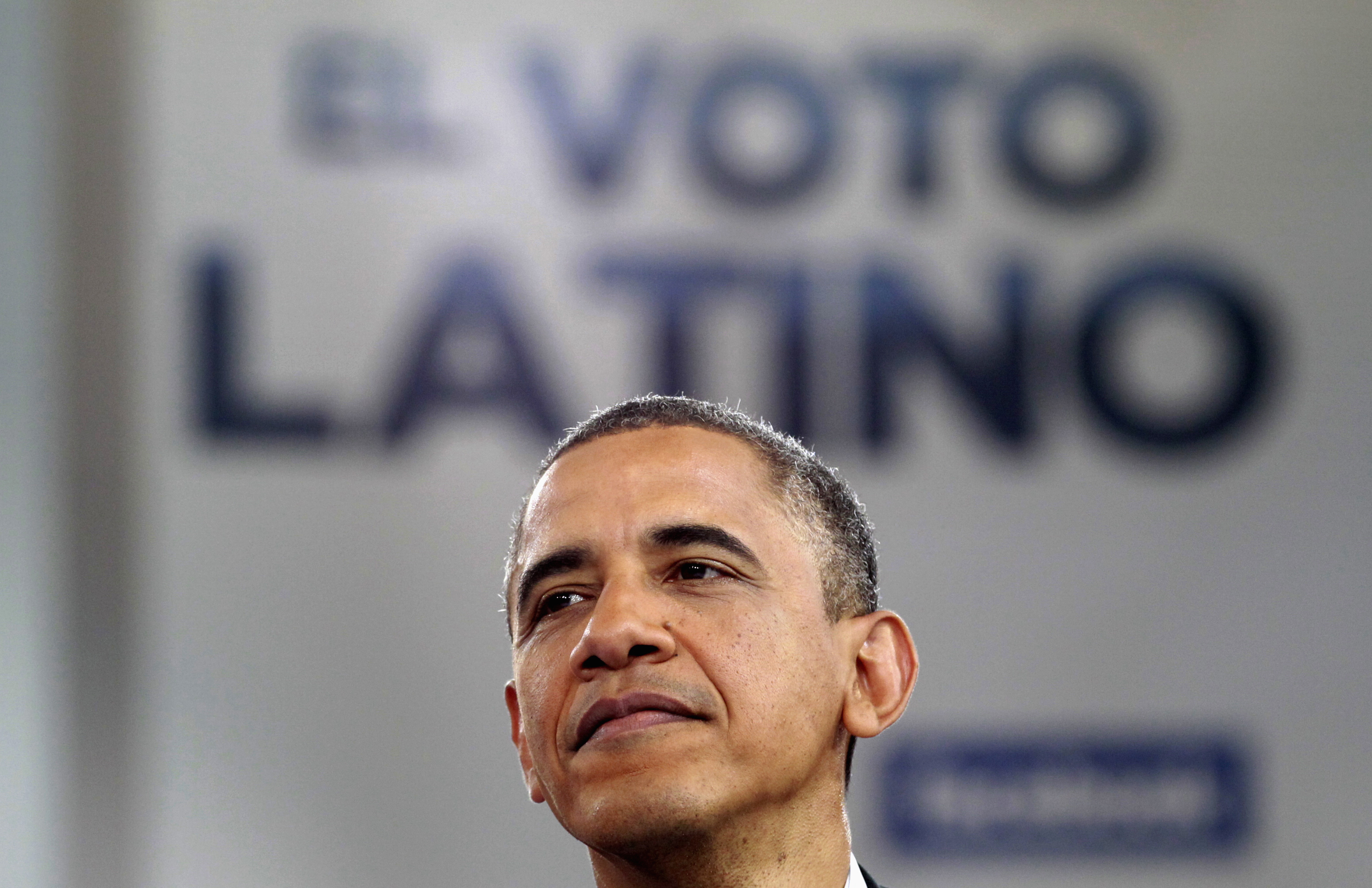Latino lessons: the voters who could win it for Obama
President Obama this week admitted that if he gets a second term, it will be thanks to the support of Latino voters. But how influential are they – and will they turn out at the polls?

It was meant to be off the record, when Barack Obama admitted to the Des Moines Register: “A big reason I will win a second term is because the Republican nominee and the Republican Party have so alienated the fastest-growing demographic group in the country, the Latino community.”
In fact according to Pew Research, there are now as many as 23.7 million Latino voters across America, a record high. And crucially, many Hispanic communities are concentrated in the very states which are so critical in this tightest of tight elections, where the talk now is of a possible tie.
Not only that, but the population is continuing to boom. One out of every four births in the United States is to a Latino family – and they are younger, too: the average age is 26, a full 14 years younger than the average for America as a whole.
In fact, according to the polls, Latino voters favour Obama over Romney by a huge margin, around 70 per cent to 30 per cent, on average.
No wonder, then, that the president of Voto Latino, Maria Teresa Kumar, says that candidates who target messages towards older, white men, simply are not going to gain much traction.
The whole machismo stereotype is wrong. Maria Teresa Kumar, President, Voto Latino
Harvard-educated Kumar co-founded her organisation with Hollywood actress Rosario Dawson in 2004, in an effort to get young people engaged with politics, and as importantly, registering and turning out to vote.
She told Channel 4 News that the Republicans had failed to appreciate how to target the Hispanic community. Latina women, she said, consistently voted more often, and more reliably than men.
Winning women
“Women are often the heads of households – they’re becoming the breadwinners, and they’re in a position to swing the vote. The whole machismo stereotype is wrong: they’ve got huge influence over the way their friends and family votes.”
Yet Romney’s talk of “self-deportation”, and Republican opposition to the equal pay act, have alienated these key women, she says: women who are leading the country in setting up small businesses, but who still earn 60 cents or less to every dollar earned by men.
Florida and Nevada are two swing states with a significant Hispanic population – but there are also growing numbers in Virginia, Ohio and Colorado, where the demographics already favour President Obama.
But none of that matters if people do not come out to vote. Kumar says there are two reasons Latinos often fail to cast their ballots: no-one asks them to register, and no-one encourages them to vote. That is why she is trying to change all that, using everything from leafletting to SMS text messaging to drive people to the polls.
Voto Latino tested the ground two years ago, in Florida, trying a variety of direct mail, calling people by phone, knocking on doors and sending them texts, to see what proved the best method.
“Knocking on doors turned out to be the most effective, then texts, but overall we achieved a turnout of 78 per cent, as opposed to 54 per cent the last time people voted.”
Rocking the vote
Her organisation also works with DJs and musicians across the country with a series of high-profile “Rock the Vote”-style gigs, another way of reaching out to young people and sending the message that voting is cool.
At one gig in Texas, 3,700 people registered to vote in one day: “And all this with modest means and a shoe-string budget”, she says.
Kumar believes the campaigns need to be more plugged in to the highly sophisticated personal networks which Hispanics rely on, with Twitter, blogs and online television and radio shows far more popular than traditional media: the usual political ads on television and radio will simply pass them by.
Registration is only half the story. An astonishing 2 million people are thought to have failed to vote in 2008 because they did not know where their polling station was. This year, it could be even more complicated, while the disruption caused by Hurricane Sandy has put up yet another hurdle for potential early voters.
It is not as simple as showcasing a few high profile Hispanic politicians, and running a series of Spanish language ads. In fact, the especially youthful Latino population means almost 80 per cent use English. Another sterotype busted.
The sophisticated Obama ground game has helped here too: teams have been working hard in the battleground states for years, maintaining contacts and voter lists and keeping in touch with the most important issues to local communities.
The Democratic message on immigration might be more attractive, but so too are the Obama plans on other touchstone issues, from job creation to education. Millions of Latinos live below the poverty line, lack health insurance, and are out of work, and the Romney message that things could be better is not reaching them.
No wonder, then, that the president is pinning his re-election hopes, in large part, on the Latino community. Yet in a race where every single vote could prove decisive, and where turnout is still in question, neither party can afford to take anything for granted.
Felicity Spector writes about US affairs for Channel 4 News